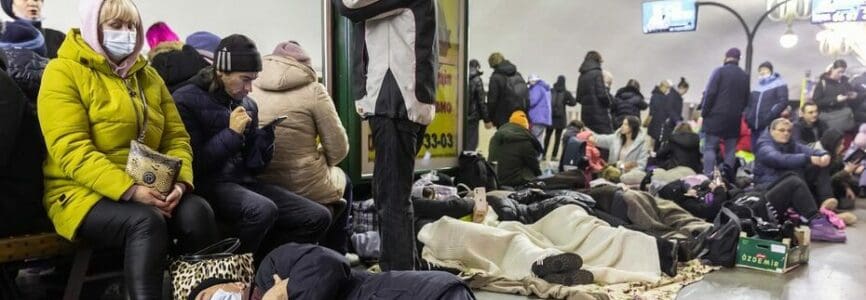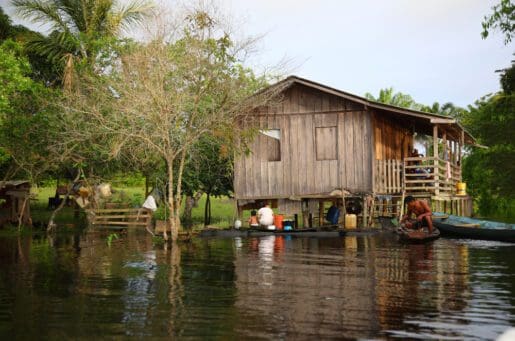Bioethics Forum Essay
Resilience and the Twin Medical Catastrophes of War and Pandemic
As I sit here in my office at the Slovak Medical University in Bratislava, my colleagues are experiencing great moral anguish because of Russia’s invasion of neighboring Ukraine. Simultaneously, we are also confronting the Omicron wave of the Covid-19 pandemic. As of this writing, we have 10,000 new daily cases in a population of 5.5 million people with 1.7 million total cases and over 19,000 deaths.
The war in combination with the pandemic complicate health care here and in other border nations exponentially. Physicians and health officials are reeling from significant burdens on health care facilities and staff, as well as from personal attacks, including death threats, because of their reasoned and compassionate advocacy for evidence-based medicine and crucially needed public health measures. The vaccination rate in Slovakia is relatively low, just about 50% for the first two doses, because of vaccine resistance driven by mis- and disinformation.
Slovakia has admitted more than 140,000 refugees fleeing the war in Ukraine. Poland, our neighboring and much larger border nation, has received over 1.3 million traumatized civilians, the overwhelming majority women and children. The addition of so many refugees–even temporarily–into the mix may cause another Covid surge, compounding longstanding stress on the health care system from years of conflict and war in the Ukrainian’s eastern border and in Crimea
Physicians and health care workers in Slovakia and other border nations are especially vulnerable to moral distress, not only because of the protracted inability to sufficiently address the health care needs of a burgeoning and traumatized population, but also because many of these individuals and/or their parents lived through previous oppression under communist and Russian-controlled rule. The word oppression is a poor and woefully insufficient cognitive concept to describe the suffering under these regimes for my Slovak colleagues. The lived experiences, the long arc of trauma until recently thought to be behind them, has once again become an imagined possibility in nations bordering Ukraine. There are numerous media reports of these nations asking, are we next?
Insomnia, disturbing dreams, and vivid imaginings are becoming more common, based on anecdotal reports, as are anxiety and depression. Yet, physicians and other health care workers must continue to see patients, to teach, to engage in policies meant to address the pandemic and humanitarian efforts in the context of public health and war. Many physicians from border nations are helping directly on the border; many of those who went to Ukraine have courageously stayed to take care of the wounded, the ill, the pregnant, and more.
There is great resilience among the people in Slovakia. One aspect of their resilience is their spirituality. It is multigenerational and reminiscent of the work of Silvester Krčméry, a physician imprisoned and tortured under communist rule in Slovakia. Writing in This Saved Us: How to Survive Brainwashing, he issued a warning that resonates today:
We are so often naive in our thinking. We live, contented and safe, with the idea that in a civilized country, in the mostly cultured and democratic environment of our times, such a coercive regime is impossible. We forget that in unstable countries, a certain political structure can lead to indoctrination and terror, where individual elements and stages of brainwashing are already implemented. This, at first, is quite inconspicuous. However, often in a very short time, it can develop into a full undemocratic totalitarian system.
Krčméry’s experience was only one example of the untold numbers of genuinely good people attempting to survive under this persecution. This cultural memory remains very much alive.
How does an ethics of care, a respect for human dignity, and an approach to medicine that also nurtures virtues survive in such an environment? How does a physician remain a physician, let alone a good doctor, when faced with protracted periods under crisis standards of care and simultaneous and ghoulish twins of war and pandemic? From my observations here, it is the support and networking of good people with other good people who support a concept of “step-by-step” virtuous acts. It is not merely pure rationality and cold logic applied to bioethical principles. As Daniel Callahan stated, it should never be “just a matter of formulating good arguments and clever responses to those of others. Bioethics requires getting into the minds, emotions, and culture of those who will actually have to make hard treatment decisions with individual patients.”
Physician-professors in Slovakia are teaching with renewed vigor the principles of biomedical ethics within the framework of respect for human dignity, an emphasis on virtue, and the necessity of nurturing intercultural communication. As a Fulbright scholar in Slovakia, I teach biomedical ethics to international medical students. I am experiencing wonder at the resilience of a people and a health care community under great emotional and moral distress. Physicians and other health care workers are nurturing of their best virtues in service to their patients, to public health, and to the public good. Official governmental policy may not always get it right, but many individuals do. More Americans should experience this.
Michael J. Murphy, PhD, is a State University of New York Distinguished Teaching Professor, Emeritus, and a member of the SUNY Distinguished Academy. He is a Fulbright Scholar at the Slovak Medical University.













Michael, thank you for these reflections. I am another American experiencing wonder at the resilience of the Ukrainian people as well as of those in border countries. I am at Loyola University Chicago, and direct a bioethics fellowship program in partnership with Ukrainian Catholic University in Lviv. “Virtually” accompanying the seven Ukrainian physicians in this program during this time has been incredible and difficult to put into words.